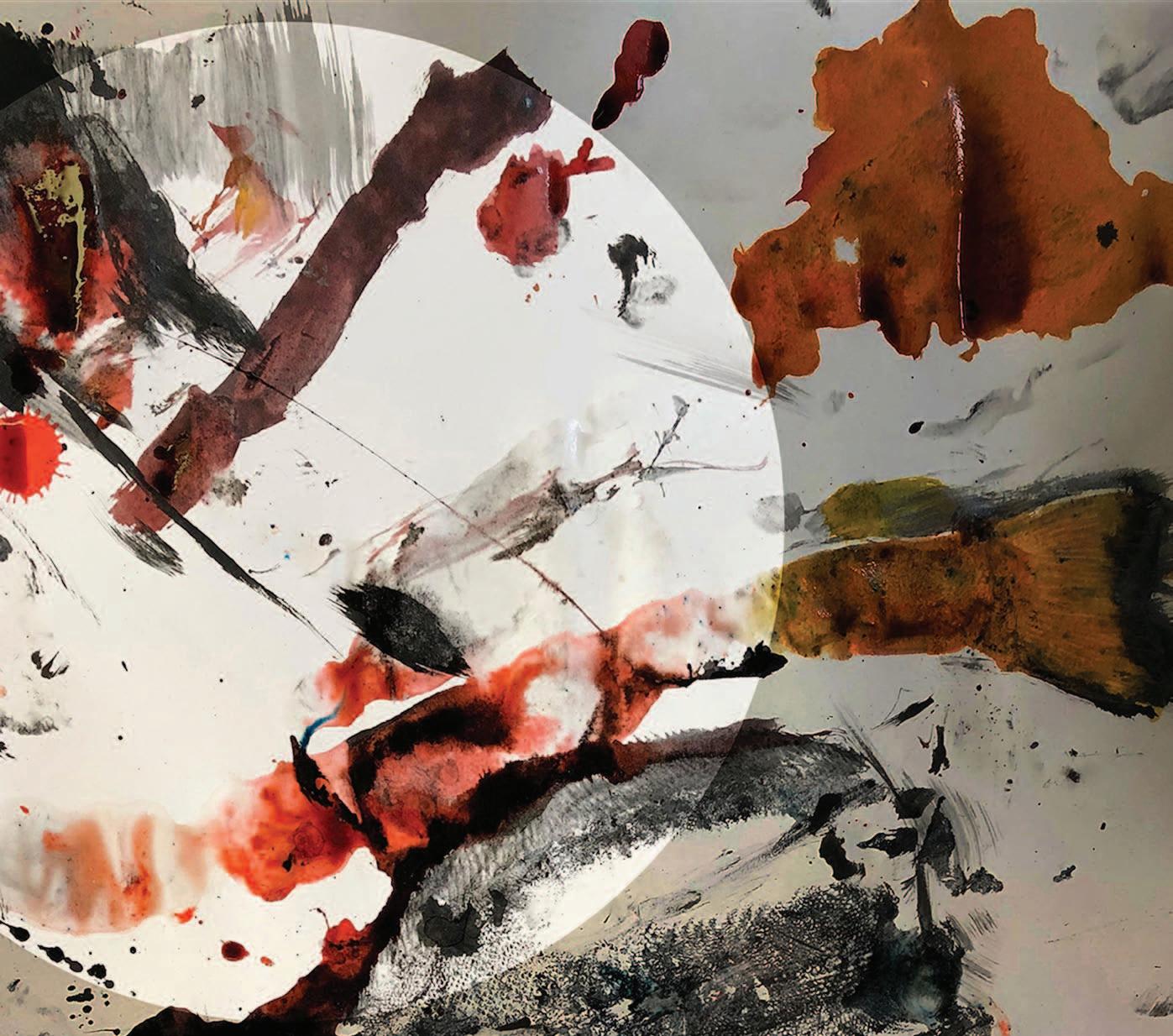
4 minute read
Chance favours the prepared mind’, Imogen Vickers
‘Chance favours the prepared mind’ Imogen Vickers celebrates the benefits of regrouping
When visiting artist Douglas White spoke recently to our pupils about his working process he triggered a conversation about the value of failure. Describing how he set out to make a series of small figurative sculptures using wax, he explained to the pupils how he was frustrated because they were not working. Discarding them into a slop bucket of warm water, he left the studio in a huff and went for lunch early. When he returned he discovered the wax had formed a beautiful crust on the surface of the bucket. This then became the basis for a successful series of abstract pieces, and later a work currently on show at the Saatchi Gallery, London. Ultimately he was successful because he recognised that he had an idea superior to his initial intentions.
The concept of accidental discoveries is not new. Alexander Fleming’s ability to recognise what had occurred whilst he was away from his messy laboratory over the Summer holidays, resulted in the discovery of penicillin. He prepared a set of petri dishes to grow staphylococci in order to investigate influenza. However, whilst he was away from his laboratory, a mould had accidently developed with a bacteria-free circle around it. Recognising that this was something worth exploring, he
experimented further and this became known as penicillin. As he describes it, “When I woke up just after dawn on September 28, 1928, I certainly didn’t plan to revolutionize all medicine by discovering the world’s first antibiotic, or bacteria killer. But I guess that was exactly what I did.”
It was the company Kutol, specialising in cleaning products, which saved itself from bankruptcy by realising that its failing wallpaper cleaner paste was in fact being used by schoolchildren to make arts and craft projects. This became known as PlayDoh. In a similar story, the pharmaceutical company Upjohn created a product called Minoxidil to treat ulcers, which proved to be unsuccessful. Further tests revealed that it could be used to treat patients with high blood pressure, and the company approached Charles A. Chidsey MD to carry out the research. However, an unexpected side effect was that patients started to grow unwanted hair. It was at this stage in development that Chidsey consulted Guinter Kahn who, with a colleague Paul J. Grant MD, recognised the potential for hair-loss prevention. Minoxidil is now used as a generic medication for the treatment of hair loss in men and women.
These stories of how discoveries were made by accident are

fascinating. As psychology professor Kevin Dunbar has shown in his research of scientific laboratories, those which had failed and then turned their mistakes into new theories tended to be the more diverse and ground-breaking. He has stated that between 30% and 50% of all scientific discoveries are accidental in some sense.
This is a good reminder of the importance of reconsidering and reassessing our initial ideas. What turns an idea from good to genius is recognising the opportunity to adapt and evolve. As Picasso stated, “I begin with an idea and then it becomes something else.” Leonardo da Vinci recognised the inspiration gained from accidental marks, stains, or chance marks: “Out of this confused mass of objects, the mind will be furnished with an abundance of designs and subjects perfectly new.” Similarly, the English watercolourist Alexander Cozens discussed how the dirty stains on his sketchbook page, “appeared upon revisal to have influenced me in expressing the general appearance of landscape.”
Accidents, chance, failure: being lead down one route and then succeeding despite, or because of, those mistakes. Had it not been for the rivalry between the Renaissance artists

Michelangelo, Raphael and Bramante, the ceiling of the Sistine Chapel would arguably look very different today. According to Giorgio Vasari in his Lives of the Artists, Bramante suggested Michelangelo to the Pope, hoping that Michelangelo would fail with the commission since he was highly regarded as a sculptor and had not shown his abilities in paint.
It seems a popular notion to encourage schoolchildren to ‘embrace failure’ which sounds in itself ludicrous. No one sets out to fail; no one wants to fail: as human beings we do not enjoy failing and we do not seek it out. However, when faced with something not going as one initially intended, rather than be overwhelmed or disheartened, we are embracing the ability to react in a positive way which leads to a better outcome. Rather than being held back by feelings of self-doubt and failure, we should recognise the chance for something new. As Louis Pasteur stated, “Chance favours the prepared mind.” So have confidence to embrace opportunities and let your ideas evolve into something far greater than you could have thought possible. Imogen Vickers is Head of Art at Ipswich High School










